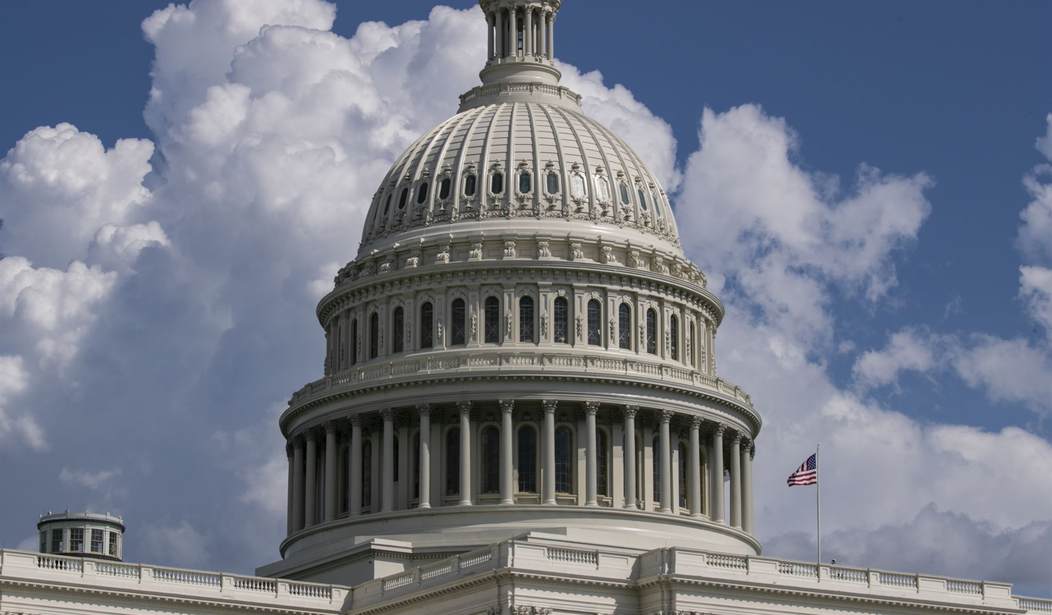It’s nearly August, and Congress is going to have to pull a series of all-nighters in order to avoid at least a partial government shutdown. There just aren’t enough legislative days between now and Sept. 30, when the government’s funding authority for this fiscal year will end, to get all the work done that needs to be done.
“We’re going to scare the hell out of the American people before we get this done,” said Sen. Chris Coons [D-Del.]. Many in Congress agree with him.
The biggest problem is that the two sides are working on entirely different approaches to government funding. The Senate is working mostly within the spending limits negotiated between House Republicans and the White House during the recent debt limit fight. That deal would mostly freeze discretionary spending at 2022 levels while allowing increases for military and veterans accounts. Also, the Senate is looking to add $13.7 billion in additional emergency appropriations, including $8 billion for defense and $5.7 billion for nondefense.
Related: Impeachment Inquiry Would Unite the Republicans Even If It Was Doomed to Failure
House Republicans, on the other hand, are preparing bills that are designed to blow up the entire process. “There are proposals to reduce access to abortion pills, bans on the funding of hormone therapy and certain surgeries for transgender veterans, and a prohibition on training programs promoting diversity in the federal workplace, among many others,” according to the Associated Press.
None of those culture war bills have much of a chance in the Democratic Senate. And the Freedom Caucus is looking to cut the budget even beyond the limits negotiated with the White House.
At a press conference at the Capitol this past week, some members of the House Freedom Caucus, a conservative faction within the House GOP, said that voters elected a Republican majority in that chamber to rein in government spending and it was time for House Republicans to use every tool available to get the spending cuts they want.
“We should not fear a government shutdown,” said Rep. Bob Good, R-Va. “Most of the American people won’t even miss if the government is shut down temporarily.”
Many House Republicans disagree with that assessment. Rep. Mike Simpson, R-Idaho, called it an oversimplification to say most Americans wouldn’t feel an impact. And he warned Republicans would take the blame for a shutdown.
“We always get blamed for it, no matter what,” Simpson said. ”So it’s bad policy, it’s bad politics.”
Speaker McCarthy is trying to prevent an open revolt on his right flank and has given the green light to the Freedom Caucus to try and cut even more. “You can always do less,” McCarthy argued. Indeed, Rep. Kay Granger of Texas, who chairs the House Appropriations Committee, said she would treat the negotiated numbers as a floor — not a ceiling.
Reinterpreting the spending deal might be seen as treachery by some Democrats.
“What the House has done is they essentially tore up that agreement as soon as it was signed,” said Sen. Chris Van Hollen (D-Md.). “And so we are in for a bumpy ride.”
Meanwhile, Democrats in the Senate are trying a more bipartisan approach, keeping within the limits negotiated by Biden.
“The way to make this work is do it in a bipartisan way like we are doing in the Senate. If you do it in a partisan way, you’re heading to a shutdown. And I am really worried that that’s where the House Republicans are headed,” Senate Majority Leader Chuck Schumer (D-N.Y.) told reporters this week.
In all, there are 12 spending bills. The House has passed one so far, and moved others out of committee. The Senate has passed none, though it has advanced all 12 out of committee, something that hasn’t happened since 2018.
Still, the difficulty ahead was evident on the House side, where Republicans gave up until after the recess on trying to pass a spending measure to fund federal agriculture and rural programs and the Food and Drug Administration, amid disagreements over its contents. They began their August recess a day early instead of holding votes Friday.
Republicans have chosen the Ag bill to fight for a codicil that would reverse the FDA decision to make drugs that cause abortions available over the counter. It’s a dubious hill to die on given that most farm-state Republicans want that Ag bill delivered as quickly as possible. And Democrats in the Senate will never approve the change.
Unless there’s a “Road to Damascus” moment by both parties over the summer break, Congress is going to return to a holy mess. It’s not even clear that there are enough votes for a stop-gap measure that would keep the government running after Oct. 1. What is certain is that the lights will burn late in the Capitol building for the next two months.










